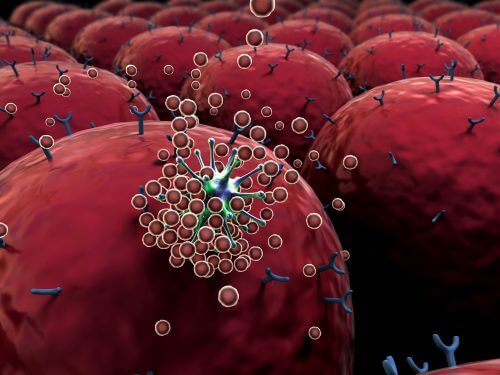The iReceptor Plus research consortium, which includes twenty partners from Israel, Europe and North America, is designed to promote the storage of data, integration and sharing of genetic sequences, related to the immune system in order to enable personalized medicine

The European Union and the Government of Canada granted the iReceptor Plus project, led by Israeli researchers, funding in the amount of 8.65 million euros to develop an innovative platform, which will allow the storage, integration and sharing of immunological information for extensive clinical and scientific uses.
The iReceptor Plus project will develop a platform of distributed databases that will contain DNA and RNA sequences related to the acquired immune system, in order to enable personalized medicine and immunotherapy for cancer, inflammation, autoimmune diseases, allergies and infectious diseases. The iReceptor Plus project will allow researchers around the world to share and explore huge databases, based on samples obtained from healthy and diseased individuals, in which genetic sequencing has been performed. These databases are currently scattered in a large number of laboratories and institutes around the world.

The project, which will last four years, is led by researchers from Bar-Ilan University. The other Israeli partners in Maged include the University of Haifa, the Blinson Medical Center, the data storage company Infinite and the project management company Intermit. Other partners include research institutions, technology companies and industrial and clinical entities from Germany, France, Norway, Spain, Portugal, Belgium, Canada and the United States. The iReceptor Plus project received funding of 7.85 million euros from the European Union as part of the Framework Program for Union and Development, Horizon 2020 and an additional 800 thousand euros from the Government of Canada.
"Most of the information is currently stored and preserved in various laboratories, which make use of a wide variety of tools and technologies," said Professor Gor Yaari from the Department of Engineering at Bar Ilan University who initiated the project. "The platform that will be opened will lower the barriers that prevent access, and will enable the analysis of large databases with the aim of facilitating access to these important data for academic institutions, pharmaceutical companies, other industrial entities, and clinical partners." Prof. Yaari added that the iReceptor Plus project will advance the understanding of the immune response and thus create a possibility for the development of innovative treatments and drugs and methods for examining the therapeutic effectiveness.
"We will access information that can lead to the development of innovative treatments," Yaari concluded. "The possibility to study and compare genomic data related to the immune system will advance the development of biomedical treatments, based on manipulation of the immune system, such as vaccines and other immunotherapies."
